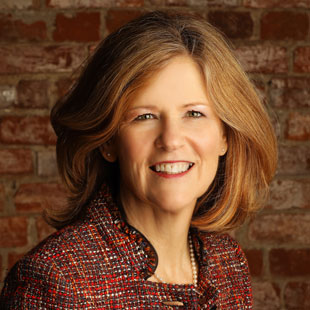Q&A with Diane Thomas and Valerie Vaughn on Best Practices to Sell Your Business


Most business owners are hyper-focused on growing their business and legacy. We sat down with NAWBO members and experts Diane Thomas (at left) of Premier Sales in Scottsdale, Arizona, and Valerie Vaughn (at right) of Apex Business Advisors in Kansas City, Missouri, to delve into the important (and often forgotten) step of planning to fund your retirement by selling your business if and when the time is right.
Q: Tell us about what inspired your business and how you developed a passion for helping other business owners through the selling process?
Diane: I purchased Premier Sales in 2002. I was looking for a major life change—I was about to have my first child and I wanted to build a life conducive to having a family. I sold my previous business, had my son and bought Premier Sales all in one month! What was super striking to me was the importance of doing an analysis of the business to let owners know the value of their business so they can decide if they wanted to go to market (or not). Surprisingly, nine out of 10 owners were not positioned to exit their business on the terms they wanted. It was very disheartening and it has not changed much over 20 years. In 2015, I found a partner with the same passion to help business owners exit their business. We started an additional business, Legacy Advisors Arizona, which helps business owners who want to transfer the business to key insiders or family members.
Valerie: I was between jobs and a good friend suggested I speak with two different women in this field. As soon as I found out what these women did, I felt that I would enjoy being a business intermediary and be a good one. To be a successful business intermediary, you need a wide variety of skills. I have a doctorate in chemistry and I’m very comfortable with numbers and research. Inadvertently, I ended up in sales my entire life. My education and professional experience created the ability to both focus on details and see big picture to effectively analyze, market, and sell a business. I felt that I had the right skill set and plunged in. I am now an independent with Apex Business Advisors, I am very successful, and I love what I do.
Q: When should business owners start to plan an exit strategy?
Diane: Three to five years from the date you want to be out. The more time, the better. If you are heavily relying on the monetization of that business, then give more time. You don’t want to wait until you’re 70 to 80 years old when you can’t invest more time and money to position the business for sale. If you want to transfer the business to key insiders or family members, you need 5 to 10 years. The longer timeframe takes into consideration that your chosen successor may not work out.
Valerie: The absolute worst scenario would be three and a half years beforehand—that’s because most small business acquisitions are financed and most banks look at tax returns. The next best scenario would be five years beforehand. The best-case scenario: people would start their business thinking about building it to sell. I am best able to help business owners who have worked with me at least four to five years prior. That way, we can start looking at numbers and seeing what the value is.
Q: Why is selling your business a great option to consider? How can it help women in acquiring wealth?
Diane: If you are looking at selling a business and you’ve built something of value, generally speaking, you’re talking about a significant amount of money in one lump sum. In most cases, your business is the largest asset on your personal balance sheet. From a standpoint of building wealth, you can build your business, sell it, then take the funds to a financial advisor to invest and diversify your investment.
Valerie: When someone gets to a point that they’re going to retire, they’re either going to close their business, give it to someone or sell it to someone. You have the ability to impact your own wealth by how you handle things. Find out early what’s attractive to buyers of small businesses and build yours with that in mind so that it will sell quickly and for the best price and terms when you are ready to sell.
Q: What are some of the top mistakes you see women business owners make?
Diane: Women business owners create a business and it’s their baby—it’s personalized. The business is heavily dependent on them and that creates an issue of transferability. Part of the challenge is letting go and delegating. If you can look at your business as an asset and manage it as a such, you’ll make different choices.
Valerie: Number one: No plan. Number two: Unrealistic expectations. No plan includes not knowing the value of their business. They’ve compared it to other similar businesses and come up with the wrong value (usually way too much). When they’re ready to sell and find out their business is not worth what they thought, they are upset. Many business owners think they know what their business is worth because they’ve talked to their accountant or attorney but those advisors are not working in the market every day. A business broker or investment banker is working in the market every day and is more aligned to set realistic expectations about value. Lastly: Books are messy. Generally, that means business owners are running personal expenses through their business or Profit & Loss statements don’t tie directly to tax returns so it’s difficult for a buyer to trust the earnings of the business.
Q: What is your best advice for things women business owners should consider NOW if they want to sell down the road?
Diane: My number one piece of advice is that every business must have profitability and cash flow—after all expenses are paid, including paying themselves. If they’re looking for monetization of the business (walking away with cash in hand) and having access to a large pool of buyers, business owners need to have $250K or more of profit and cash flow.
Valerie: Business owners should plan for a year to completely exit out of their business. Secondly, many women business owners get certified as WBE to get a competitive edge and that helps them build their business, but it can actually hurt when they go to sell. The reason is because it diminishes the number of buyers who can acquire their business (the buyer will need to be able to meet the certification requirements). I advise that as you grow, diversify so that you don’t need to rely on those certifications to win new business.

